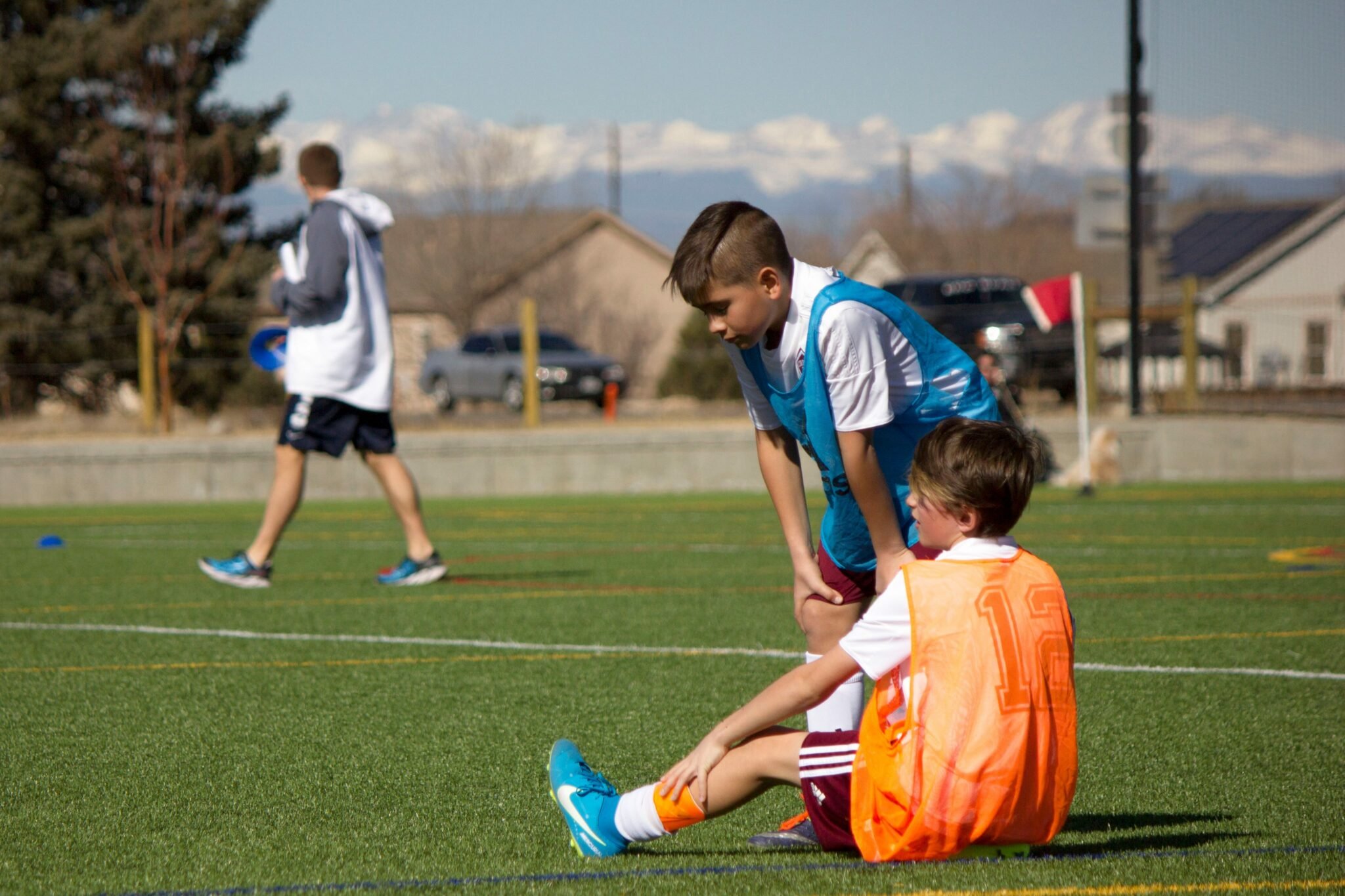Psychology of Injury: Part 2
Posted by: Mason Blake l University of Denver Center for Performance Excellence Consultant
In Part 1, we explored some of the mental consequences inflicted by injury, namely athletic identify, motivation/adherence to rehabilitation, lack of confidence and poor focus. These factors all represent barriers to an effective rehabilitation and are often disregarded, neglected or poorly treated during the recovery process. Therefore it is important the support network of injured players receive education surrounding the mental ramifications of injury and are adequately prepared to mobilize and address these psychological and emotional needs. So with that being said, what can coaches, athletic trainers and parents do to support and guide injured soccer players through the mental challenges induced by injury?
Values Identification
For players who connect deeply with their identity as a soccer player, injury occurrence can induce a raft of negative mental consequences (e.g., anxiety, depression), as they struggle to obtain meaning from everyday life in the absence of soccer. Values identification entails determining core personal values that inform who you are as a person, specifically how you want to be as a person in the world and interact with others. When your behavior is guided by these values, life becomes more fulfilling and meaningful. By recognizing what is important in their life, injured players are able to identify as much more than just a soccer player and establish alternate activities that allow them to satisfy these values and thus lead a meaningful life away from soccer. Values identification can also be used to address a lack of motivation or adherence during injury rehabilitation.
Reduced motivation or adherence is often attributable to a desire to avoid uncomfortable or undesirable thoughts, feelings and sensations (e.g., pain) associated with rehabilitation. Whilst time should be taken to identify a player’s personal values, performance values (i.e., how they want to be as a player, how they want to be perceived by others) should also be explored. Through establishing performance values, a conversation surrounding emotion-driven and values-driven behavior in injury rehabilitation can be initiated. Emotion-driven behavior is chosen to alleviate short-term discomfort (e.g., not completing rehabilitation exercises to avoid pain in the injured area), however, these actions inhibit any long-term benefits. (e.g., injured area is not strengthened). Values-driven behavior instead required players to experience short-term discomfort in accordance with their performance values (e.g., committed) in order to move towards long-term benefits. Simply put, players must be willing to accept the uncomfortable thoughts; feelings and sensations that arise during rehabilitation and choose behaviors that align with their values. So when an injured athlete is struggling to find a purpose in the absence of soccer or to stay motivated during the grueling task of physical rehabilitation, ask them these two questions. What kind of person do you want to be? What kind of soccer player do you want to be?
Focus Training
Being able to focus on the right thing at the right time is an essential skill for any injured player during rehabilitation. Our mind has the tendency to wander off, often replaying old memories (e.g., how the injury happened) or worrying about what the future may hold (e.g., will I be able to get back to my best?). When our attention is not anchored in the present moment, we are unable to achieve our full potential. During rehabilitation different internal and external aspects of the environment fluctuate in their importance (e.g., at times it may be most salient to focus on pain to use it as information, whilst at other times it may be more salient to focus on the feedback being provided by your athletic trainer), therefore it is imperative to provide injured players with the tool to self-regulate their attention and subsequently focus on what is most important from moment to moment.
Mindfulness training, or focus training, is one such way to cultivate these skills. When practiced deliberately and consistently, mindfulness can help refocus attention on the task at hand and foster full engagement. In the context of rehabilitation, mindfulness skills will help an injured player notice where their mind is at (e.g., worries about returning to soccer) and gently bring it back to whatever is most important at that moment (e.g., mechanics of rehabilitation exercise). Mindfulness can also be used to address low levels of confidence during rehabilitation. Typically self-confidence is diminished by undesirable thoughts and feelings (e.g., fear, self-doubts, worrying etc.). It is important to note that experiencing these types of thoughts and feeling is completely normal as a human being when the outcome of the task, in this case, a successful recovery, is of high personal importance. We have been conditioned to believe that having these thoughts is bad and therefore we need to change, suppress or get rid of these thoughts to have any chance of being confident or performing a task well. This is not the case. In fact, trying to control these types of thoughts and feelings has been shown to actually make them worse and exacerbate performance issues. Instead of trying to change our thoughts and feelings, we need to change our relationship with them, through the use of mindfulness skills and techniques.
Mindfulness practice can train players to become aware of when fear, worry or self-doubt arise in the mind. Instead of getting caught up or hooked in by them, players can respond to these with toleration and acceptance, creating space to remain present and act in a more effective way. Simply put, injured players don’t need to feel confident in achieving your goals. By learning how to make room or undesirable thoughts and feelings, players can allow them to pass through their consciousness freely without a struggle, freeing them up to be the person and player they want to be. Genuine confidence is not the absence of fear, worry or self-doubt; it is merely the process of transforming your relationship with these negative thoughts and feelings.
Mental skills are just like any other technical, tactical or physical skills. They take time, practice
and dedication to cultivate. By practicing some of the skills detailed above, injured soccer
players can begin to address some of the mental barriers inherent in rehabilitation.










